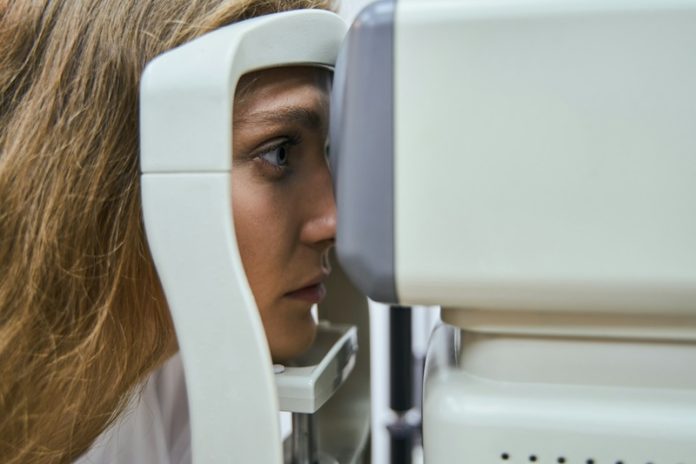
When we think about diabetes, we often focus on how it affects blood sugar levels or the risk of heart disease and kidney problems. However, one of the lesser-discussed but equally important complications is its impact on vision.
Blurry vision can be one of the early warning signs of diabetes and can also indicate that someone with diabetes is experiencing complications.
This connection between blurry vision and diabetes is more than just coincidence; it’s a significant health concern that can lead to vision loss if not properly managed. Let’s explore this connection in simpler terms, shedding light on why it happens and what can be done about it.
The Basics of Blurry Vision and Diabetes
Blurry vision in the context of diabetes can occur for several reasons, ranging from temporary changes in blood sugar levels to serious eye conditions that can develop over time.
High blood sugar levels can cause the lens inside the eye to swell, changing its shape and flexibility, leading to a temporary blurring of vision. This kind of blur often resolves once blood sugar levels are managed and return to a normal range.
Long-term Complications
The story doesn’t end with temporary blurriness. Over time, consistently high blood sugar levels can damage the blood vessels in the retina, the part of the eye sensitive to light. This damage can lead to diabetic retinopathy, a leading cause of blindness in adults.
In its early stages, this condition may not cause noticeable symptoms, but as it progresses, it can lead to significant vision impairment or even blindness.
Research Evidence
Studies have consistently shown a direct correlation between diabetes management and the risk of developing eye complications.
For instance, the landmark Diabetes Control and Complications Trial (DCCT) and its follow-up study, the Epidemiology of Diabetes Interventions and Complications (EDIC) study, have demonstrated that maintaining blood glucose levels as close to normal as possible slows the onset and progression of eye diseases caused by diabetes.
Furthermore, regular eye exams can detect changes in the eye early on, allowing for treatment that can prevent or delay vision loss.
Preventing Vision Loss
Prevention and early detection are key. People with diabetes are advised to have comprehensive eye exams at least once a year. These exams can catch diabetic retinopathy and other eye conditions like glaucoma and cataracts, which are also more common in people with diabetes, at an early stage.
Managing diabetes is crucial for preventing vision complications. This includes controlling blood sugar levels, blood pressure, and cholesterol.
Lifestyle changes, such as eating a balanced diet, exercising regularly, and not smoking, can also play a significant role in preventing vision problems associated with diabetes.
Treatment Options
For those who develop diabetic retinopathy or other eye conditions, there are treatments available that can help preserve vision. These may include laser therapy, injections of medications into the eye, and surgery. The specific treatment depends on the type and severity of the eye condition.
A Clearer Future
Understanding the connection between blurry vision and diabetes emphasizes the importance of diabetes management and regular eye care. With the right approach, it’s possible to protect your vision and prevent the serious complications diabetes can cause.
It’s a reminder that seeing through the blur of diabetes complications requires awareness, action, and ongoing care. By keeping a watchful eye on both blood sugar levels and vision changes, individuals with diabetes can maintain not only their sight but also their quality of life.
If you care about eye health, please read studies about how vitamin B may help fight vision loss, and MIND diet may reduce risk of vision loss disease.
For more information about eye disease, please see recent studies about how to protect your eyes from glaucoma, and results showing this eye surgery may reduce dementia risk.
Copyright © 2024 Knowridge Science Report. All rights reserved.



